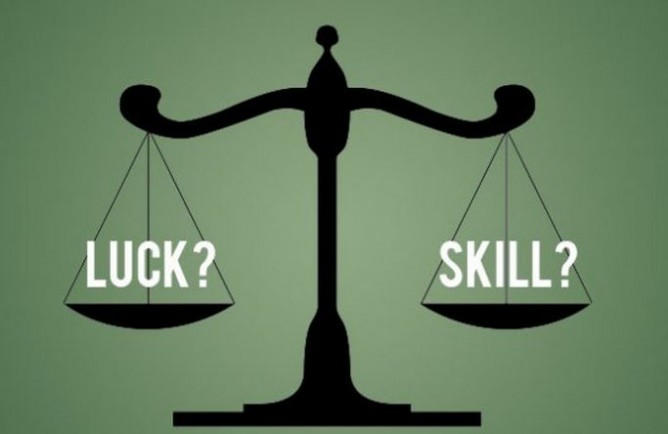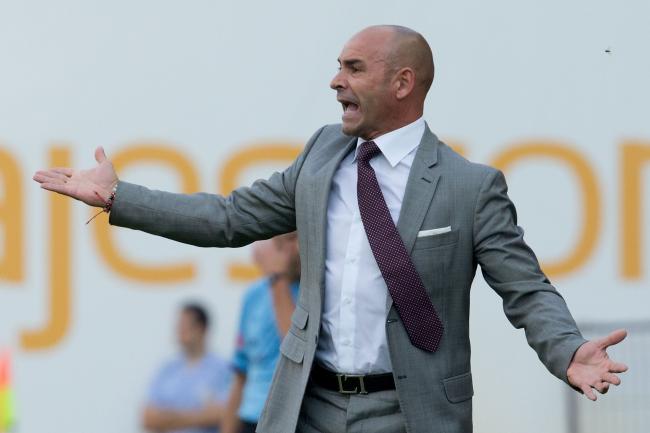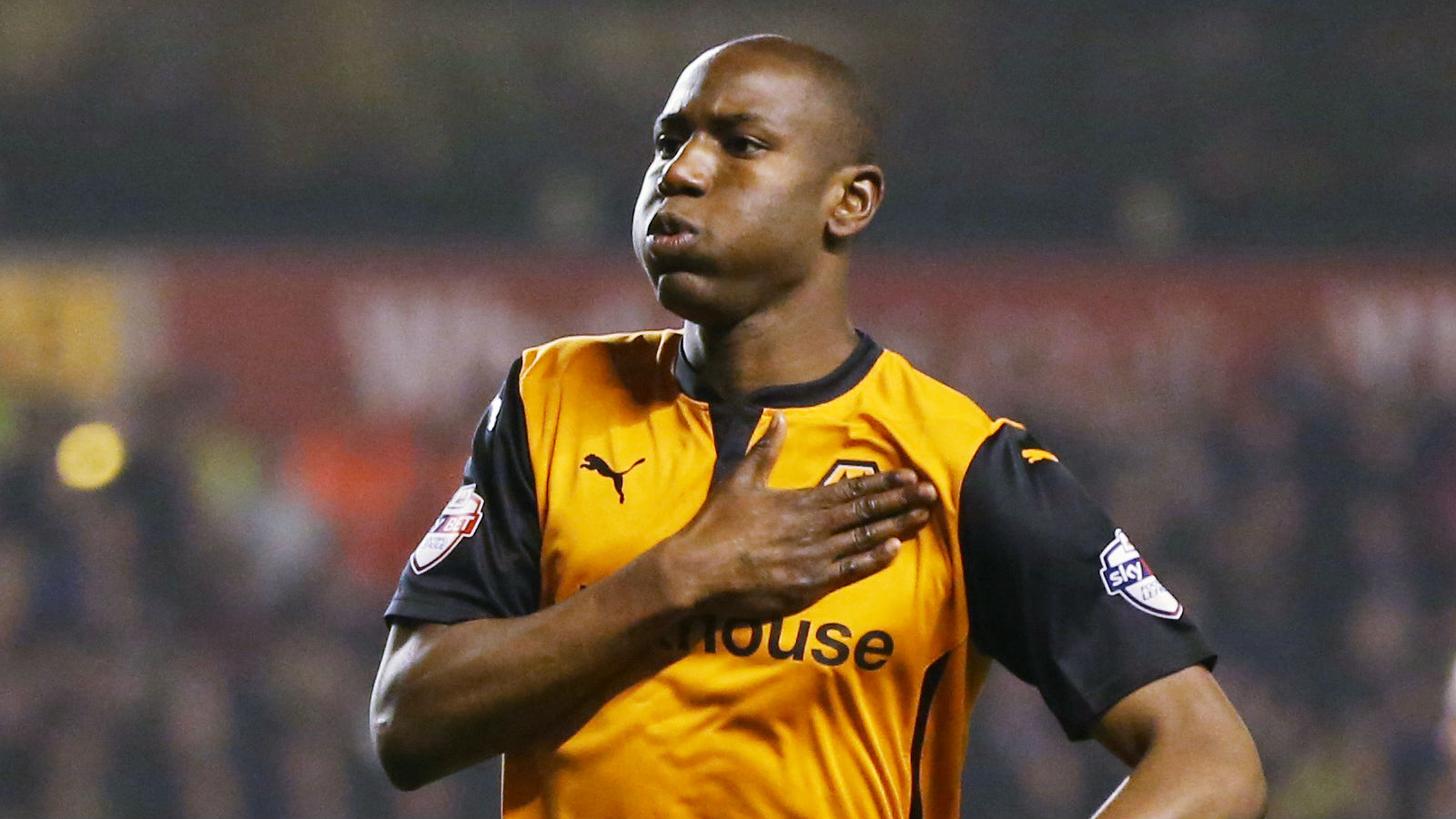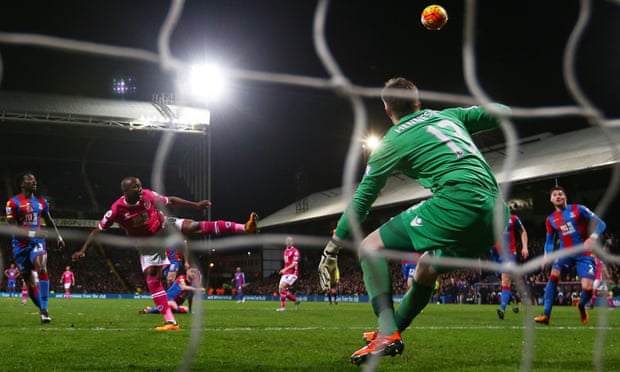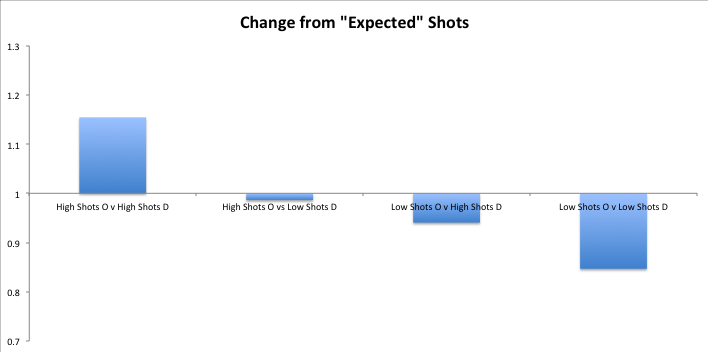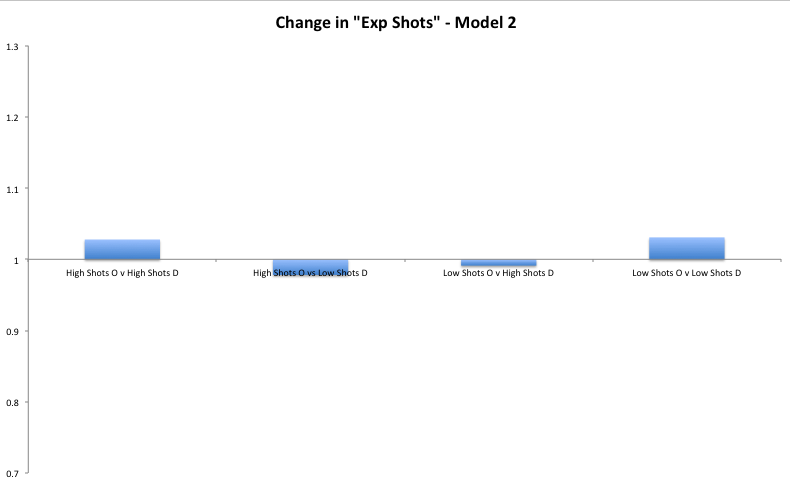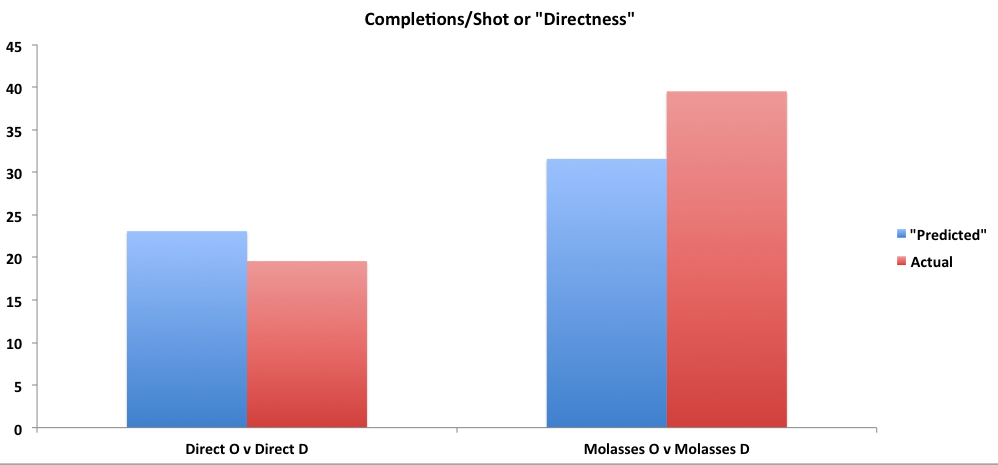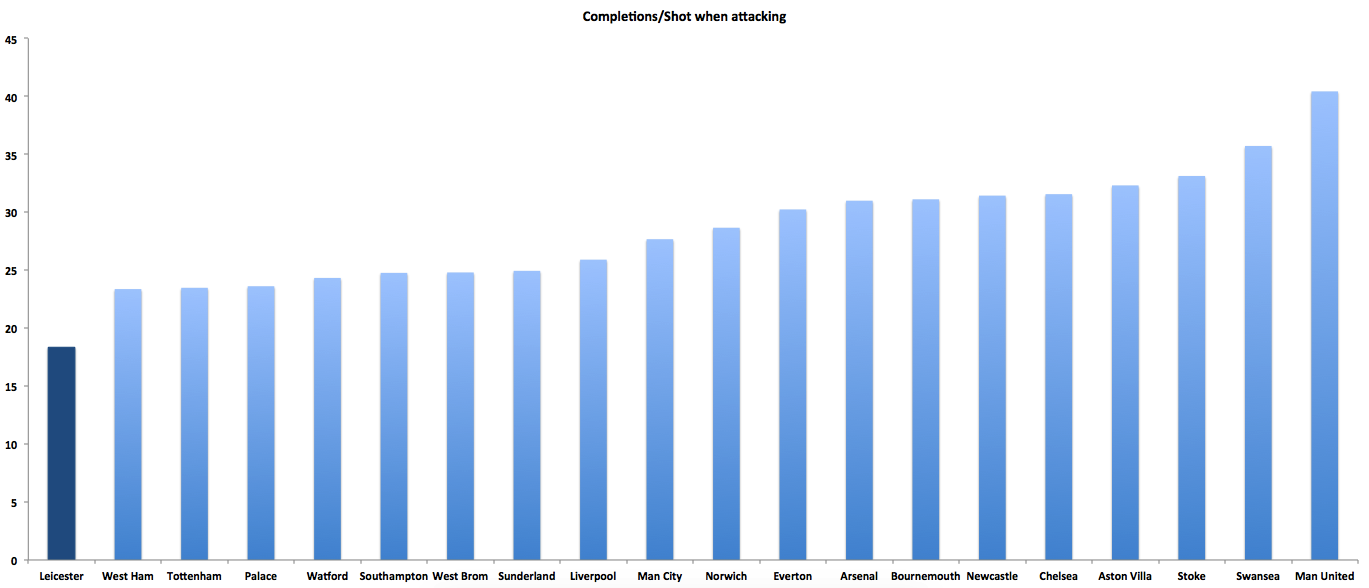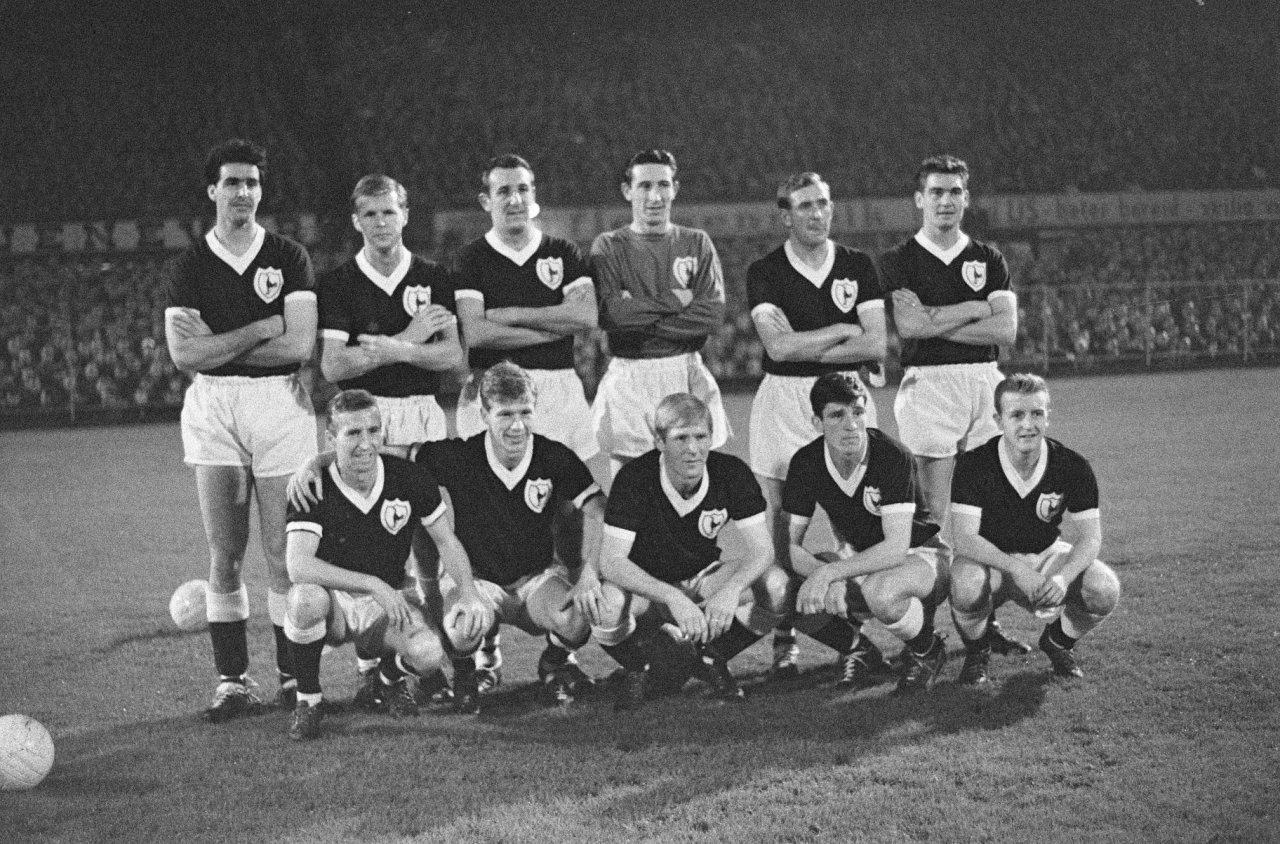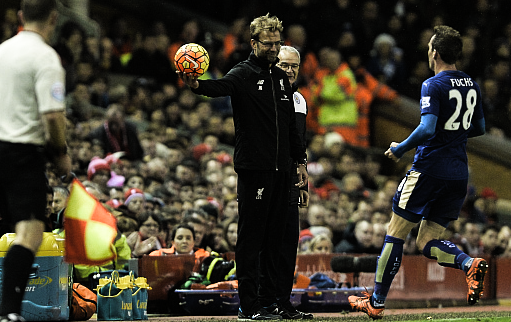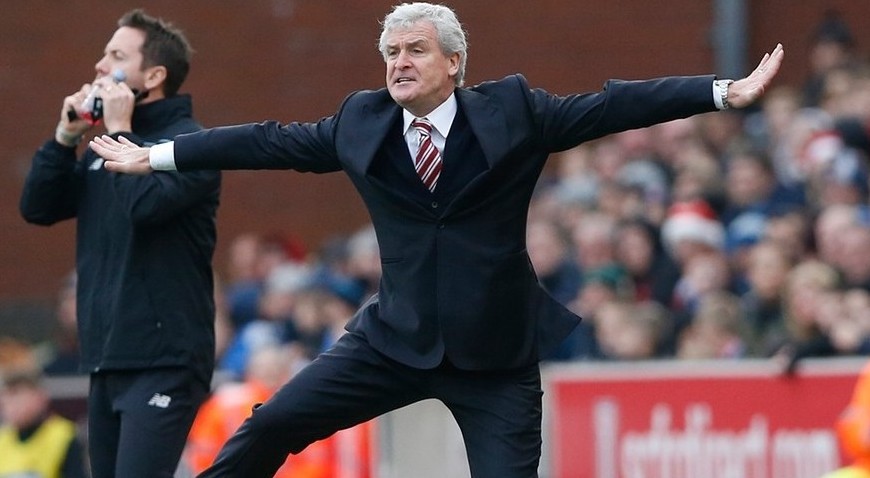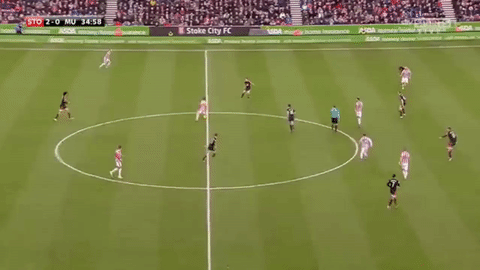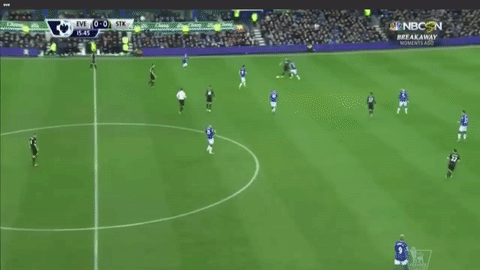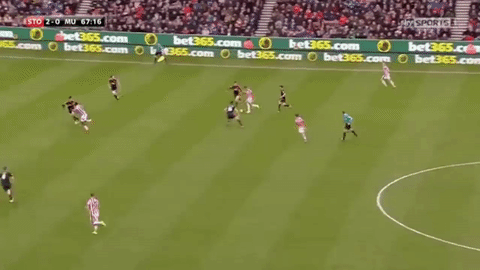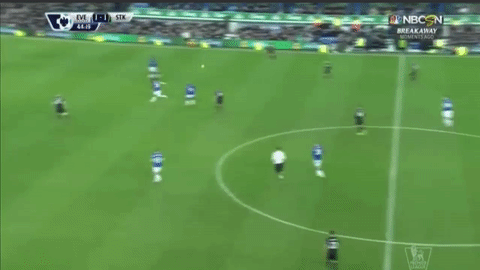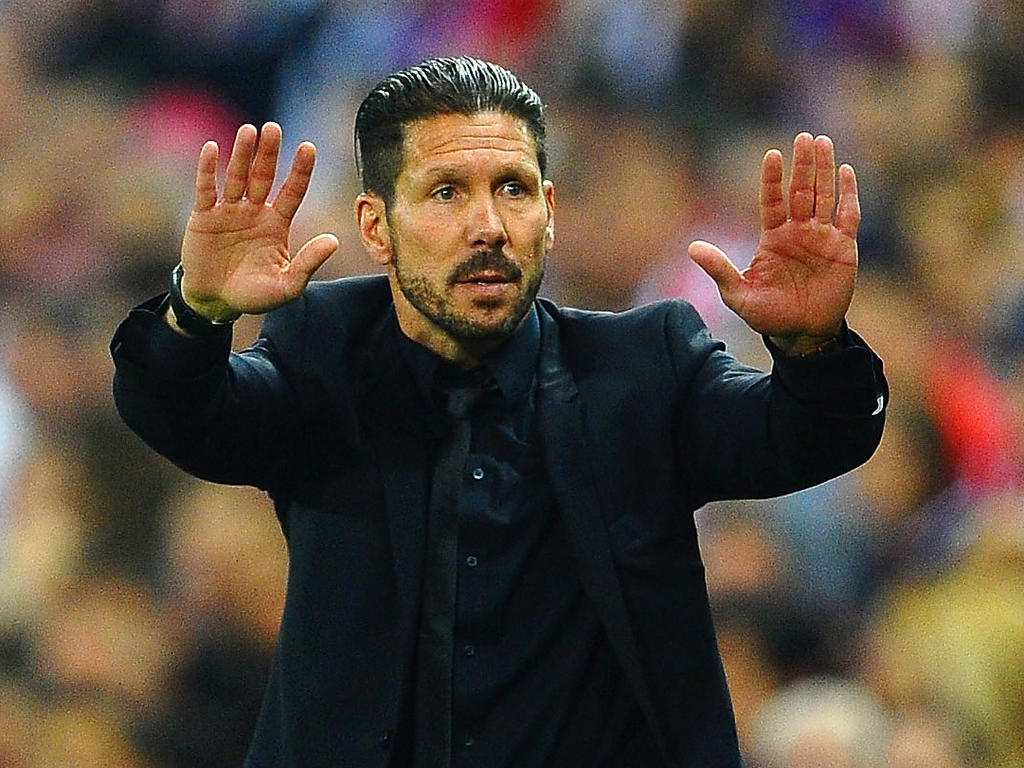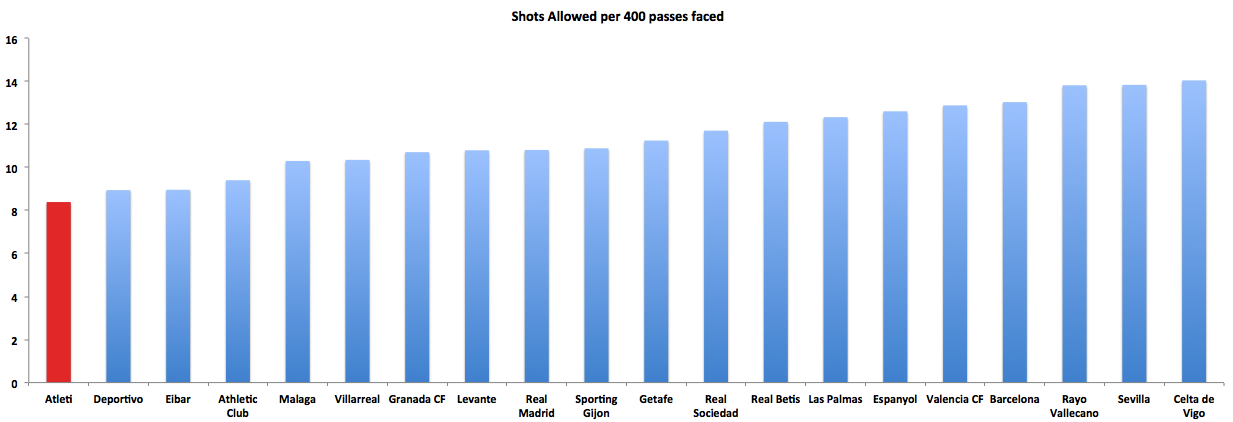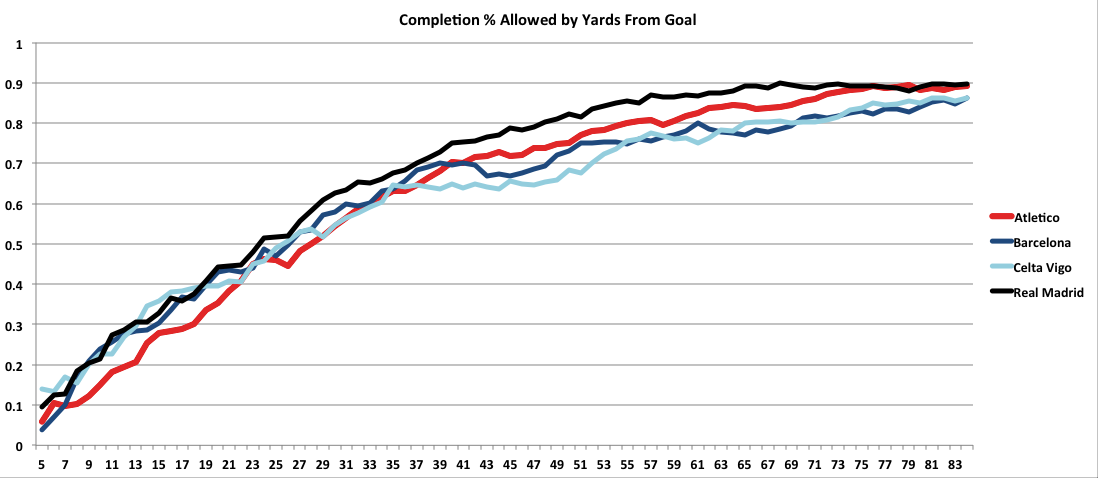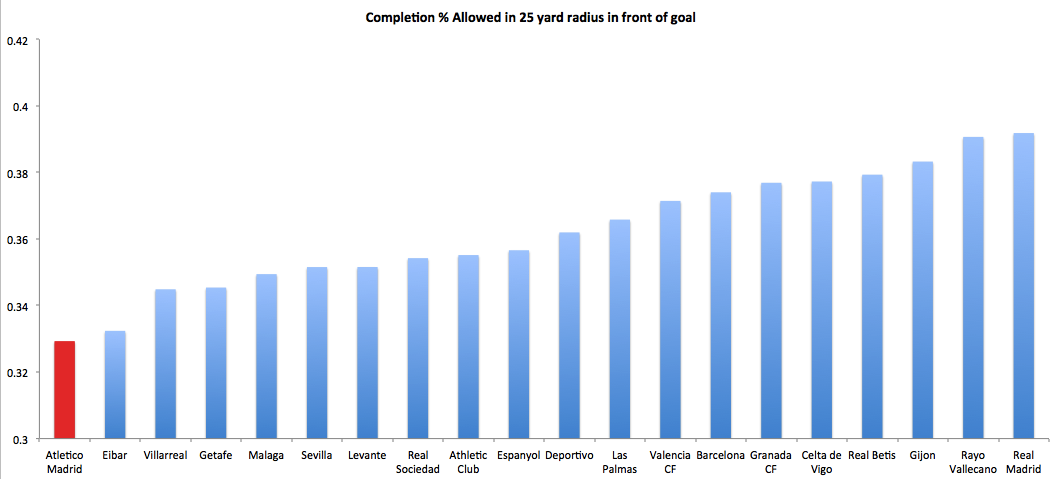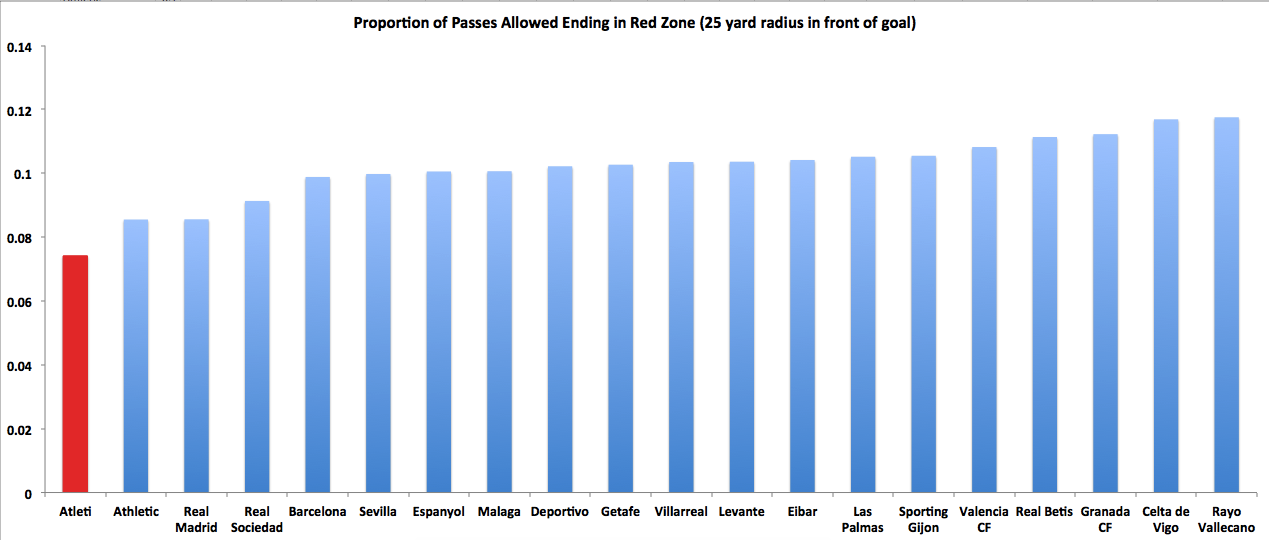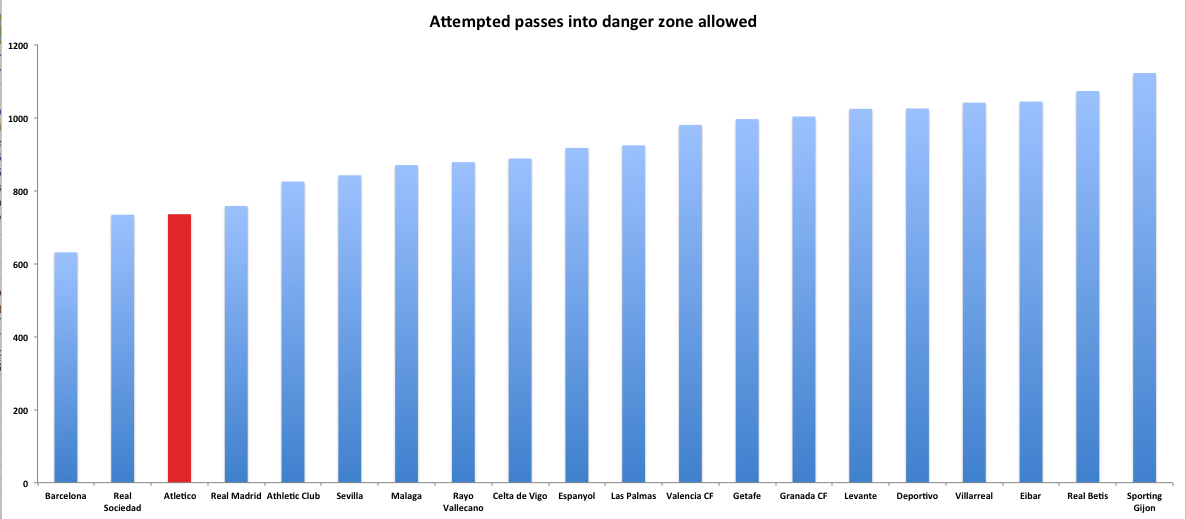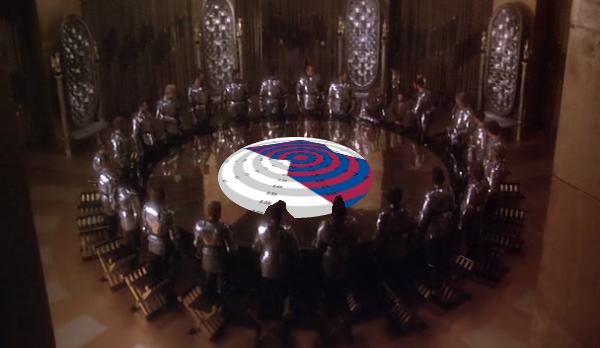 So we reach the business end of the season. By way of contrast to the many models we see, we thought it might be interesting to gauge opinion from our writers and a small group of friends of the site. It's important to remember that although every one of the contributors has done extensive writing or work with a statistical slant, they are all first and foremost football fans. And what do football fans have? Opinions. Cobbling together a few questions was straightforward enough and a mix of reflections and predictions should be enough to stir a mixture of agreement and horror. What do we learn? Stats guys like:
So we reach the business end of the season. By way of contrast to the many models we see, we thought it might be interesting to gauge opinion from our writers and a small group of friends of the site. It's important to remember that although every one of the contributors has done extensive writing or work with a statistical slant, they are all first and foremost football fans. And what do football fans have? Opinions. Cobbling together a few questions was straightforward enough and a mix of reflections and predictions should be enough to stir a mixture of agreement and horror. What do we learn? Stats guys like:
- Romelu Lukaku
- Barcelona and Dortmund for the Champions and Europa League (Innovative!)
- Bournemouth to improve next year
- Leicester to decline- markedly
And plenty more. Enjoy! Contributors Paul Riley (PR), Mohamed Mohamed (MM), Dustin Ward (DW), Will Gurpinar-Morgan (WGM), Clarke (C), Thom Lawrence (TL) Peter Owen (PO), James Yorke (JY) Full profiles are at the end of the article.
1. Who wins the Premier League and why? WGM: My expected goal numbers favour Arsenal overall, so I'll go with them. Really though, there is still a long way to go and we'll likely see plenty of twists and turns in such a tight race along the way. PR: I don't know! The only team I'd rule out at this stage is Leicester as I don't think they have the quality or experience to last out. What a run they've had, though, it's been brilliant. PO: Manchester City. With Kompany, Toure, Silva, and Aguero all fully fit City have the best team in the league. City also have a much nicer run in than Spurs and Arsenal. If either one of Kante/Mahrez/Vardy gets injured then I think it puts Leicester at a significant disadvantage to the rest of the top 4. C: It is close but I have Spurs wanting it more than the other 3 contenders. Pochettino has done a great job of wrangling the confidence away from other teams while at the same time instilling a mental toughness that really shines through in set piece situations. DW: Arsenal. Significantly better than Leicester and Tottenham and 4 point edge on City. TL: Tottenham would do nicely. No drama, the most reliable machine in the top 4, and I struggle to find a good reason they _shouldn't_. MM: Arsenal will win the league. The full team coming back healthy for the stretch run seems like a good omen for their shot numbers to stop diverging from their expected goal numbers. Getting knocked out of the Champions League by Barcelona will mean that it's one less competition to deal with. A fully functional Arsenal, which can be as rare as a meteor shower, is the best team in the league this season, and I'm betting that we'll see that for the majority of the final dozen games. JY: Tottenham are the best team in the league, Leicester will drop off, City are asleep and Arsenal still aren't clicking. So there.
2. Player of the year so far and why? PR: Riyadh Mahrez. The way he's maintained his form throughout Leicester's season is pretty amazing considering the hurdles he has to jump that other contenders don't: firstly, Leicester's switch in tack from toe to toeing to rope-a-doping, secondly, the direct style this takes in, and thirdly, the level of player around him. Young Player? Harry Kane. Leading the line, mixing it up like he does and still getting that no of shots off at his age is really quite something. I love the way he strikes a football. PO: N'golo Kante. Has to go to a Leicester player really doesn't it and Romelu Lukaku (yup, even after multiple generations in the premier league he's still young enough to win it) TL: Lukaku for young player, lest you need reminding that he's 22. In a way, he's rivalling Lineker's 30 league/40 total goal season, scaled back to a far worse Everton team than the mid-80s incarnation. C: Ozil and Lukaku. Pretty obvious reasons, I think. Ozil is trying this year and Lukaku is gaming expected goals. DW: Mesut Ozil and Dele Alli. Probably win it on even playing field but the fact he is only 19 pushes him further ahead. MM: Paulo Dybala. Had Nabil Fekir not torn his ACL he could've been a candidate and Lorenzo Insigne until about late December was having a banner year for a resurgent Napoli, but Dybala is the best player on Juventus and over the past 3-4 months has been the most dynamic striker in Serie A. He's much better than I thought he would be right now and even at the price they paid to Palermo, Juventus got a great bargain JY: Ozil narrowly ahead of Mahrez, think his crazy high assist total is enough to swing it for me, and I like the idea that he's owed some props from the UK press who typically haven't "got" him. Young player? Whole shortlist could be Tottenham players, Lukaku is still young enough too. Been a good year.
3. Manager of the year so far? PR: Pochettino. Spurs were a bit of a shambles last season. Now I can't really see many weaknesses at all...and the numbers back that up. PO: Again feel obliged to go with Leicester so it's gonna have to be Ranieri. C: I refuse to give this award to the manager of the team with a high PDO. (Sorry, Claudio, Mauricio, Arsene and Slaven). In a wildly unpopular move I am voting for Manuel Pellegrini with Man City still top two for a ton of metrics and all that with an injury riddled line-up. He hasn't got the positive skew like the others and is still in striking distance. Plus, he seems like a nice person. WGM: Ranieri. While Leicester appear to be have hitched a ride on a tidal wave to propel them to first place, it's important not to go too far and put all of their improvement down to the footballing gods. DW: Ralph Hasenhüttl at Ingolstadt. Has taken a team with relegation-level talent and relegation-level money solidly into the mid-table by turning them into a ferocious defensive machine. Ugly with the ball but effective overall. MM: Pochettino. I've liked him going back to his Southampton days and what he's done with a Spurs side that's soon to be transitioning into a new stadium with a ton of young players has been remarkable in such a short time. Hopefully for Tottenham, he won't be swayed elsewhere this summer. TL: Ranieri. Not since David O'Leary has a manager taken such a scrappy team of misfits and racists, skipped training a couple of days a week, and broken through the glass ceiling with such ease. JY: Even beyond my obvious bias, I think Pochettino has improved Tottenham more than Ranieri has Leicester and a scratch at the numbers pretty much supports that, though I accept it's arguable.
4. Which player from a bottom half team should bigger clubs look to sign this summer? PR: Romelu Lukaku. He's wasting his time at Everton. He could be a huge star. TL: The way things are going, probably Lukaku. PO: Diego Costa WGM: I was going to suggest a Chelsea player but figured that was too easy/troll-like. So I'll go with Lukaku. DW: Alexandru Maxim from Stuttgart. The 25-year old isn't getting a lot of starts but consistently puts up incredible passing numbers from midfield. If you can carry his lack of defensive work, he's great going forward. They might not be willing to get rid of him as cheaply as his playing time suggests with Didavi a free agent but it's worth a call. MM: Lukaku. He's one of the 10 best strikers in the world already and he's not even reached peak age. For as much hype as Michy Batshuayi has garnered, Lukaku is just a few months younger than him with four years of PL goal scoring to his resume. We could live in a world where he is the best striker in the world. JY: Hmm... depends where Everton end up, Barkley and Lukaku are at the right point on the curve for a big club. As you can see from the other answers, this isn't a simple question, most of the cream is already at the top.
5. Who should be most disappointed by this season? Man Utd/Chelsea/Liverpool/? PR: They should all be thoroughly ashamed. They all lack any kind of proper leadership off the field. WGM: It’s hard to look beyond Chelsea given the historic nature of their fall. PO: Going with the easy answer and saying Chelsea C: Dear, Liverpool supporters: process should always outweigh results and the process looks pretty good. An 18 month PDO slump can really wear you out but understand better days are coming. DW: Manchester United. They have the most money and the most stability and have arguably performed the worst. Chelsea and Liverpool have certainly been unlucky to be so low in the table, to what degree we can debate. Manchester United have been pretty lucky to be as high in the table they are. MM: Chelsea just because of the magnitude of their drop this season. Liverpool were always flawed and LVG constricts shot numbers like he has a personal bet with someone. Chelsea were the only team that had genuine aspirations and they probably won't have European football next season. JY: Man Utd. They aren't unlucky, and it hasn't even been entertaining for the neutral. That's criminal to me. TL: Chelsea, with a truly historic collapse brought about by everything going wrong both on and off the pitch.
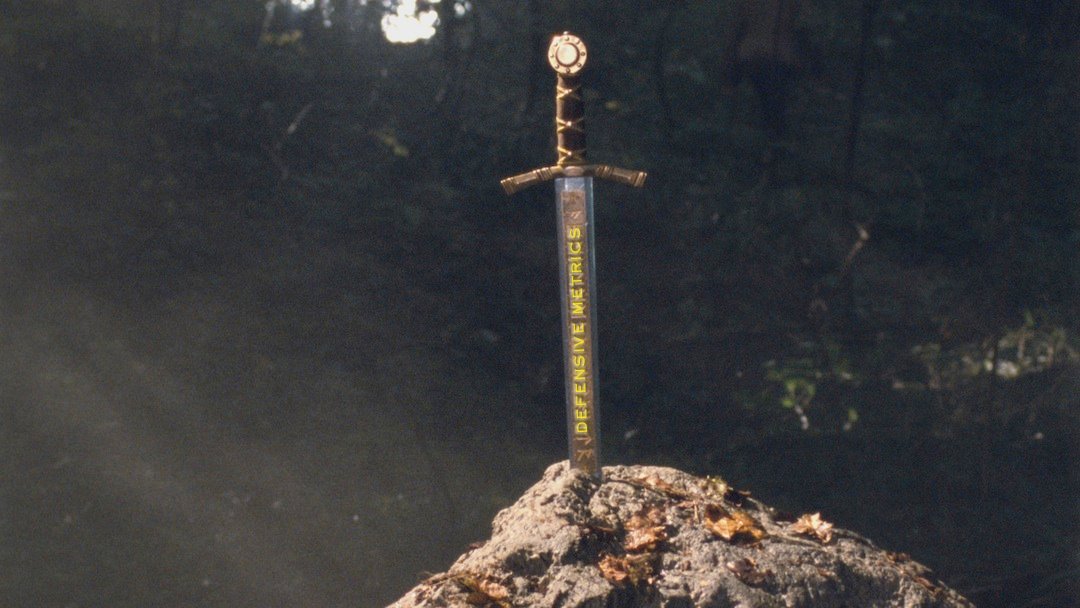 6. It is the Champions League Final, a quirk of fate has meant that your life depends on beating Barcelona by selecting one Premier League team to beat them. Who do you pick? PR: Tottenham. Pochettino's the only manager I'd back to come up with a gameplan to give them a game with the players he's got. PO: A fully fit City with Pep at the helm. C: A full strength Man City. TL: Arsenal. I believe their fans are the most psychologically conditioned for defeat by Barcelona so from a utilitarian standpoint it would probably cause the least anguish, despite my inevitable doom. DW: Manchester City. It's either Arsenal or City as those two have too large a quality gap with the rest for matchup concerns to factor in. I think City healthy is better and don't see any sort of tactical or matchup reason that Arsenal would do much better so I choose the best team. MM: West Brom. I'm going to die anyway if I pick a Premier League team to beat the best team in 20-25 years so I might as well live and die by Pulis ball. JY:
6. It is the Champions League Final, a quirk of fate has meant that your life depends on beating Barcelona by selecting one Premier League team to beat them. Who do you pick? PR: Tottenham. Pochettino's the only manager I'd back to come up with a gameplan to give them a game with the players he's got. PO: A fully fit City with Pep at the helm. C: A full strength Man City. TL: Arsenal. I believe their fans are the most psychologically conditioned for defeat by Barcelona so from a utilitarian standpoint it would probably cause the least anguish, despite my inevitable doom. DW: Manchester City. It's either Arsenal or City as those two have too large a quality gap with the rest for matchup concerns to factor in. I think City healthy is better and don't see any sort of tactical or matchup reason that Arsenal would do much better so I choose the best team. MM: West Brom. I'm going to die anyway if I pick a Premier League team to beat the best team in 20-25 years so I might as well live and die by Pulis ball. JY: I always think a fully fit Arsenal can give anyone a game. [written pre-Champions League game, and that didn't pan out]. Obviously, THIS SPURS TEAM would be comfortable. WGM: I really like Spurs’ defense this year with the combination of pressing higher up the pitch and in midfield combined with the protection they offer to their central defense. That ability to be proactive in defense could serve them well in advance of Dele Alli’s winning panenka penalty in the shoot-out.
7. Disappointment of the year (player/transfer)? PR: None, really. It's been a good year overall hasn't it? And all transfers come with risk attached and I rarely agree with any that are made anyway! Christ knows what's in the thinking of managers/clubs and their recruitment policies. A lot look like random acts of kindness to the seller! PO: Jordon Amavi - not disappointment with his performance but with the fact we didn't get to see him play more, and also that he's probably not going to be playing in the Premier League next season, poor fella. C: Many Chelsea players, Memphis Depay and Steve McClaren TL: Aston Villa's entire Summer window, not because I think they did _egregiously_ bad business, but because it'll go down as cute analytics signings sinking one of England's most venerable clubs. DW: Josip Drmic. It was easy to see coming that replacing Max Kruse with Drmic was going to be a huge downgrade for Gladbach. Drmic is bad with the ball and floats on the periphery, 10 million euros for him was too much. He played 400 really bad minutes and is already off to Hamburg. MM: Jackson Martinez to Atletico. There were warning signs that this wouldn't work well but it shouldn't have happened this quickly even with Martinez's age. Luckily for Atletico, China came calling and they somehow ended up making a profit. JY: I feel sorry for Depay. Soon as he picked Utd I thought it was a bad idea. He's young and can get it back but living with Louis is miserable. [edit: has game of his life night before this article released]
8. Are you happy with your team’s season? What is the first problem they need to solve in the summer? PR: (Everton): Nothing gets sorted at Everton without new owners and some actual plan off the field beyond existing. PO (Liverpool): Results, nope. Although getting Klopp has made everything worthwhile. C: (Middlesbrough): Yes, I am pleased. I don't want to jinx it but our GK has been confident. DW (Liverpool): Yes. Hiring Klopp makes me happy, I enjoy his personality, his antics and like that he seems to be able to connect emotionally with players in a way that Rodgers didn't seem to do. This summer Liverpool need to get a lot more athletic. There are big physical weaknesses everywhere but the largest might be speed in the midfield and defense. Seeing Lucas and Kolo Toure try to cover large open spaces is not pleasant. MM (Marseille): As the only one here to support a broke French club, I'm not happy at all with this season. Michy and Lassana Diarra's revival have been the two saving graces and Michy will be gone in the summer. I don't want to go on and on about this but Marseille should stop hanging by the coattails of big clubs/PL sides for loans and start taking advantage of France's vast amount of produced talent from smaller clubs/lower leagues, which they've done previously but have forgotten in recent windows. JY (Tottenham): Yep, I'm still at the stage where I will take top 3/4 as it stands, anything else is a bonus but next year the first problem is going to be quelling expectation that we will bulldoze the Champions League. It's been genuinely exciting and surprising to see such a dramatic improvement over such a short space of time though, I figured next season was when it could come together if it all went right, and we're there already. Great stuff. TL (Everton): Nope. Our defence continues on the standard Martinez trajectory, and we have an incredible, free-wheeling attack that has failed this season to crack even the smallest nuts when it actually counted. I'd be intrigued to give Martinez one more season to prove he can build a system around Stones that actually functions, but I assume the transfer market will blessedly take the decision out of his hands. I'd personally accept we're not close to the top 4 and maintain cool heads while working out long term replacements for Howard, Jagielka, Baines and Barry, while finding some depth at right-back and in our attacking positions. WGM (Liverpool): It’s hard to evaluate the season. In isolation, it’s clearly been a disappointment in terms of results but the hope is that we’ll look back on this as the start of a successful era under Jürgen Klopp. There have been some encouraging signals in some of the underlying numbers but the team was clearly hampered by the injury crisis and fixture schedule after a promising start to Klopp’s reign. A good run until the end of the season would be nice though! As far as the summer goes, the key for me is that everyone at the club works together and pulls in the same direction in relation to transfers. After Rodgers’ sacking, the hatchet jobs in the media on the transfer committee, and Michael Edwards in particular, made it abundantly clear just how dysfunctional the club was in terms of the recruitment process. Mistakes will still be made no doubt but having something approaching a professional process would be a vast improvement.
9. Where will Leicester finish next season? PR: Mid-table obscurity. TL: Bold prediction: top half. They never needed depth this season, but will now have the cash to plug that hole without anybody noticing. The crown jewels seem to be staying and I'm sure their analytics peeps have an intriguing Summer planned out, but I think with a more packed schedule and a normal amount of luck, they are not going to repeat their dominance in a cash-rich, Pep-powered league. PO: lol C: Enigmatic Leicester. So many factors at play. Will key players stay for the Champions League? Can they attract better players? Will the extra games affect the league? Plus, will their style of play, high conversion rates and a lack of injuries catch up with them? I will go with 7th but I wouldn't be that surprised if they end up 14th. DW: A fair over under for me would be 9.5th place. MM: Top 8. I think the majority of this squad will come back and they'll realize that a lot of variance both statistically and fixture wise went their way. From the looks of it, Leicester are a forward thinking side so they'll try and add to the squad with the extra money coming their way. There's like a 3% chance that Leicester can somehow become a semi permanent top 4 club with smart squad building and the influx of money but I'm going to go with the 97% and a top 8 finish seems more likely. JY: 8th. They have no squad. Yeah, they've been good but probably need to hang onto Mahrez (unlikely) and buy about 6 solid players just to stand still. And standing still, really, is edge of Europa pace.
10. Which club is best positioned to “do a Leicester” next year and improve into the top 7? PR: Chelsea!? PO: With a couple good centre mids Everton could do something very similar to what Spurs have done this season,not quite what you're looking for but close enough. DW: Bournemouth. I really like Eddie Howe and they dominate territory this year more than teams like Manchester United and Everton so the bare bones are there for something really good. Maybe controlling territory somehow caps "low-talent" teams ceiling but I generally doubt that and think they are building something impressive. C: I think Bournemouth could surprise. Hindered by injuries and a crazy low save% but still top 10 in a variety of shot metrics. MM: It's actually hard to answer this question. Southampton doesn't really count because they've been a top 7-8 side the last two seasons and flirted with a top 4 finish in both seasons, Stoke have nice players and a commendable project but I'm not a fan of Mark Hughes and I'm not trusting Pardew period. So I guess... let's go with Everton. If they can improve the shambles behind their front four, find some ball playing midfielders, find some young CBs that can play and keep Lukaku/Barkley/Deulofeu together, maybe they can make another miracle run like they did in 2013-14. JY: This depends on how we define "doing a Leicester"as I think so much has to go right to even get a sniff at the edges of top 7 and with the fallen giants surely regrouping, it'll get no easier to break in. Throw in your Stokes, West Hams, Southamptons and 10th suddenly looks a good finish. Maybe Swansea hire someone a bit fun and get the magic skew again like last year. TL: Everyone's going to have so much money it seems unlikely we'll experience such a surprise again - even the teams in the Championship promotion places are splashing the cash. Obviously if Leicester didn't exist we'd be raving about Watford and perhaps Ighalo can power them to another strong finish. The only fairy tale that remains available is really Bournemouth, so it'd be wonderful to see them avoid some of the bad luck they experienced early this season.
11. Do you sell Daniel Sturridge in the summer? Do you buy Daniel Sturridge in the summer? PR: Liverpool shouldn't have to sell. They've got enough money to buy as well as, not replace. Conversely, why would I buy someone that injury prone when I've got enough TV money now to go shopping anywhere else in the world? Unless the price is right of course... WGM: I’m totally biased but when fit, there are very few strikers around who are better than him. The list of strikers that are better than him and who Liverpool could conceivably buy is even shorter (I’d argue it’s pretty much zero). ‘When fit’ is the obvious caveat but if Liverpool can put together an appropriate fitness programme/treatment, then they’ll have a player who is much better than what they currently have available. Investing in a younger proto-Sturridge with potential to develop should be doable in the summer with funds available plus current fourth choice striker, Christian Benteke, could be sold for a reasonable sum of money (plus Balotelli leaving would free up wages). PO: Honestly couldn't think of anything more stupid. Liverpool would be selling their best player, probably at a lot less than true value. His wages are nothing at a macro level, and when he does play it improves the team more significantly than any other player in the squad. If Liverpool want to be a top 4 team their best bet would be keeping hold of Sturridge. TL: The ultimate glass cannon, he has pretty irreplaceable numbers when he plays, so depending on Liverpool's bank balance I'd probably just keep him around as a luxury. I think it'd be a difficult sell for any club's fans if you were to drop serious money on him, especially for teams that are in the middle of rebuilding anyway. Then again, if you're someone like Man City, near their peak, and looking to plug gaps in elite players' seasons like Aguero, you might hope that Sturridge's injury schedule gives you one whole elite striker in the aggregate. Big gamble, but his numbers are real. C: The answer to both questions is, 'Damned if you do, damned if you dont.' Doesnt play enough to warrant his wages but when he does play he is worth every £. DW: No and no. If he's healthy, he's Liverpool's best player. There don't seem to be any serious structural problems so I don't think they should sell him. If they do sell him, as a buying team I'd be suspicious there is either a structural problem or Liverpool believes he will just never trust his body again. If the team that knows him best puts him up for sale, that's a data point against him. MM: Yes and maybe. I think Daniel Sturridge when healthy is easily the most dynamic player Liverpool have. Yes Suarez helped elevate Sturridge to a different level but even without him, he's been productive. I'm just super skeptical that he can stay fit and play 1800-2000 league minutes. JY: No, cos then you have zero top class strikers instead of half a broken one.
12. Who wins the Champions League/Europa League? PR: Barcelona/Sevilla PO: Gonna have to say Barca and Dortmund C: Clubs from Spain DW: Barcelona or Bayern Munich are the two best teams by far but if I had to bet against public opinion on my twitter timeline, Real Madrid. Generally underrated by analytics community. In the Europa League Dortmund are by some distance the best team. TL: It'd be nice if Bayern Munich stayed fit enough to make it a fair fight, but Barcelona are presumably the safe bet. I was looking forward to Valencia vs Midtjylland in the Narrative Cup Final, the Danes winning on penalties after discovering a previously unknown loophole in the laws of the game allowing them shoulder barge the keeper into the net, but it's not to be... WGM: Barcelona and Borussia Dortmund. MM: Barcelona/Dortmund. If Dortmund were playing in the CL, they would be regarded as one of the 4-6 best teams in Europe so I think they're prohibitive favorites to win the EL as long as they try. Barcelona are one of the best teams to have ever graced the Champions League so unless multiple injuries happen to key players, I find it hard to believe that they won't repeat. JY: Boring, boring Barcelona, who are clearly anything but and er... Sevilla? Wait, what am I saying? Tottenham Hotspur is once more the answer.
13. Anything you’d like to make comment on that hasn’t been covered by these questions? DW: I think that it's very likely that within 7-8 years there will be 4 or 5 Chinese teams better than most teams in the French League. PR: Good lord, no. JY: With the news this week that Roy Hodgson hates stats, we must redouble efforts to infiltrate the mainstream. Thanks for reading! Contributors Paul Riley (@footballfactman)
Long regarded as a foremost analytical evaluator of goalkeepers, Paul has shared his expected goal dashboard and chance creation maps this season with the site. In a rumoured final foray he has recently started work on a series of analytical analyses on the forthcoming England 2016 squad.
Mohamed Mohamed (@MoeSquare) StatsBomb's resident Ligue Un expert, Moe has recently branched out to Spain with a look at Rayo Vallecano and the lower reaches of the Premier League with Stoke and Aston Villa, amongst other work. He has written articles across a variety of tactical and analytical websites and recently started a podcast based on his first love, Ligue Un. Dustin Ward (@SaturdayOnCouch) StatsBomb's resident Bundesliga expert, Dustin has produced series of popular articles on the league and has become renowned for his deep dives into the numbers, often revealing sharp insights. He has also recently looked at the defensive structure of Atletico Madrid and soon a long awaited shift to the Premier League will lead to an analysis of his own team, Liverpool. Will Gurpinar-Morgan (@WillTGM) A former Optapro forum presenter with a strong technical and statistical base, Will has been posting analytical work since 2012 on his blog. Most recently expanding on his non-shot expected goals model to look at a variant of plus/minus, he has also recently evaluated aspects of Arsenal's season and looked at differences in metrics via shot expectation. Clarke (@footyinthecloud) Running the essential "Football In The Clouds" website, Clarke provides a unique take with his 11 v 11 shot numbers as well as advanced on pitch individual player stats. Peter Owen (@_PeteOwen) In looking at football through a statistical lens, Pete is a valued contributor here at StatsBomb. He has recently evaluated aspects of luck versus skill, looked at officiating and competitive balance. Thom Lawrence (@deepxg) In a whirlwind entrance to analytics, Thom under his Deep xG moniker has quickly won many plaudits for his ideas and visuals. Most recently building his PATCH defensive metric, his website is full of innovation and those ubiquitous polygons. James Yorke (@jair1970) Editor of StatsBomb, as required, and writer of a weekly Premier League Round Up column. Also recently started contributing for @ESPNInsider
